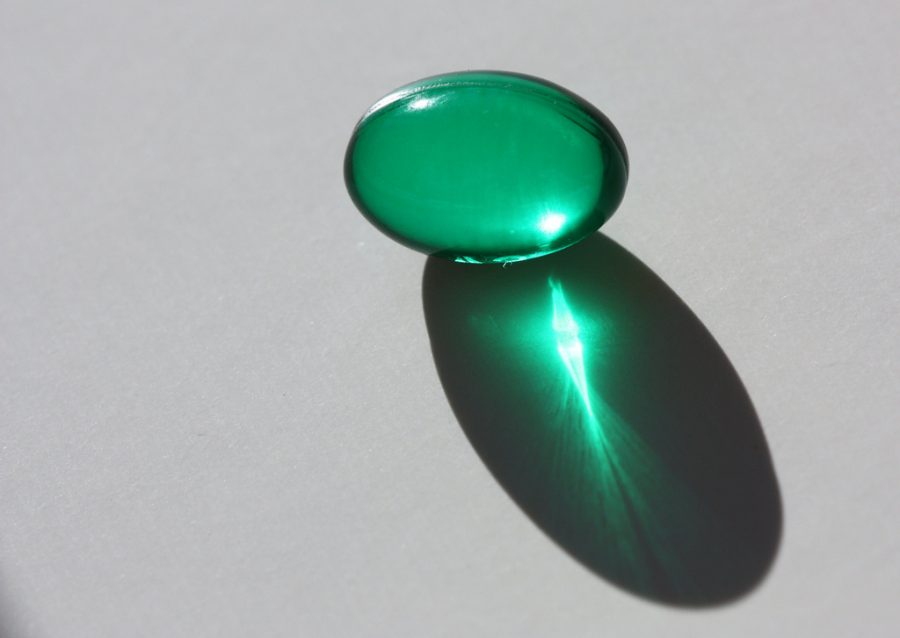Do you ever feel a little down during the winter months when there doesn’t seem to be enough sunlight to go around? Do you ever wonder why people are more likely to get sick during that time of the year? It’s possible that decreased levels of vitamin D may be to blame. plays several vital roles in the human body, including both immunological and psychological roles that aid your fighting response to viruses and bacteria and boost your mood.
Vitamin D is unique because it is the only vitamin the human body can make on its own, but we need the help of sunlight to do it—kind of like the human version of photosynthesis. Once vitamin D is created within special skin cells, it travels to the kidneys where it is converted into the steroid hormone calcitriol. Calcitriol helps keep calcium levels in the blood, bones and gut stable as well as assisting with cell communication.
In the small intestine, vitamin D works to promote calcium. This creates a positive feedback loop where the calcium is then used as a catalyst to help cells digest more calcium and other vitamins. In turn, more lymphocytes (the cells that destroy viruses and bacteria in your body and originate from bone marrow) can be produced. This is why some symptoms of a vitamin D deficiency include getting sick, feeling tired, experiencing bone aches, decreases in bone density and impaired wound healing.
Calcium is also used to stimulate muscle contractions; low calcium levels will create symptoms that include: muscle pain, fatigue and back pain. While the symptoms of vitamin D deficiency are mostly physical, a deficiency can begin to have psychological effects if it persists long enough. Constantly feeling sick and fatigued can lead to mental health issues like depression. According to the Vitamin Council, studies found that when chronically sick individuals experiencing symptoms of depression received more vitamin D, their physical and mental improved. Another study also found that there are vitamin D receptors in the areas of your brain that process emotions; when you have low levels of vitamin D, you are at a greater risk for depression.
To correct deficiencies, you need to either get more sunlight, eat vitamin D rich foods or purchase some supplements. Sunlight is a natural, easy and free way to increase your vitamin D intake. There are few foods that naturally include vitamin D (most types of fish, dairy and mushrooms), so many foods are fortified to include it (orange juice and even some cereals). When checking nutrition labels, you may be surprised by how many foods contain vitamin D or are fortified.
The final way to increase vitamin D levels is to begin taking supplements. Many people may jump into purchasing a supplement to “solve” the problem, but think twice before you try that. Most supplements are pricey and often have more of the vitamin than you need. A person aged 19-50 only needs 600 IU of vitamin D a day and the lowest dosage (that I could find in the isles of CVS) of vitamin supplements contains 1000 IU. The surplus of vitamin D will be naturally flushed through your body. If you are concerned about a vitamin D deficiency, consult your doctor before trying supplements.
Sophia Perkins can be reached at [email protected].




















Marc • Mar 28, 2018 at 12:40 pm
You mentioned light, and that is the key: especially sunlight, which enhances mood dramatically, summer or winter. Serotonin is produced in the brain under the influence of bright light and lack of sun exposure is the reason for poor mood, not vitamin D deficiency, although that is very important to health.
Dr. Gavin Lambert and his colleagues in Australia measured serotonin levels in response to varying degrees of bright light. To do this, they drew blood samples from the internal jugular veins of 101 men and compared the serotonin concentration of the blood to weather conditions and seasons. The results were remarkable: Men who were measured on a very bright day produced eight times more serotonin than those who were measured on a cloudy, dismal day. They also observed that the effect of bright light was immediate, and that there was no holdover from day to day. There we have the answer to SAD. When the sun is shining, winter or summer, wherever you are, take advantage of it. It will elevate your mood and make you feel more alive. More information: sunlightinstitute.org